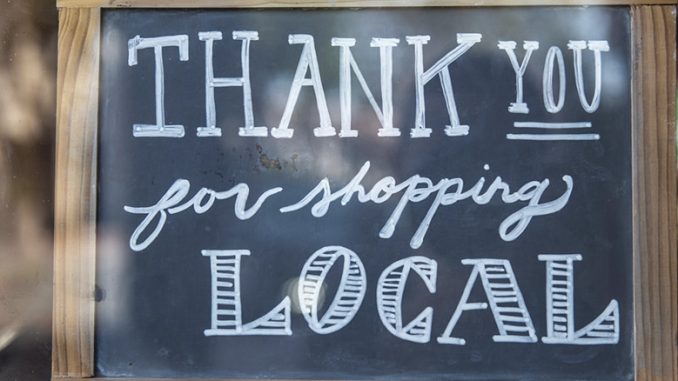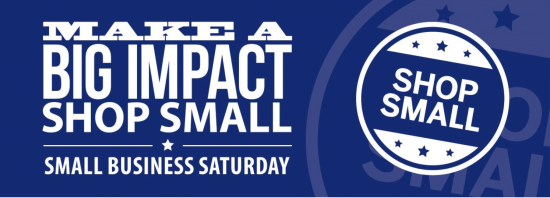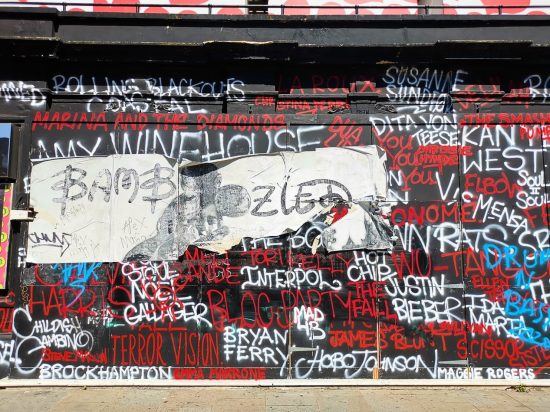
We explain the history of Small Business Saturday and how you can support local establishments this giving season.
BY KATRINA YENTCH
BARISTA MAGAZINE ONLINE
Cover photo by Tim Mossholder for Unsplash
Supporting local is an echoed sentiment in the coffee industry that’s more important than ever this year. Small Business Saturday is a phrase that some of us may have only heard within the last few years, but the concept has been around since 2010—here we explore what the shopping holiday is and how you can support independent coffee brands, plus other small businesses that are especially in need during the holiday season.
Small Business Saturday is honored in the United States as a counter-movement to the country’s Black Friday and Cyber Monday shopping sprees, which happen just after Thanksgiving Day and Native American Heritage Day. Black Friday is usually filled with “doorbuster” sales by large corporations—something that small businesses cannot afford to give. Thus, Small Business Saturday was conceived as a way to boost sales and support for independent companies within the same timeframe.

The credit-card company American Express was actually the first to create and promote Small Business Saturday in 2010. They partnered with the National Trust for Historic Preservation, purchasing ad inventory on Facebook to give to their small merchant account holders. Today, Small Business Saturday is trademarked by American Express but is celebrated and promoted by small businesses across the country. According to The Balance Small Business, 112 million shoppers participated in the occasion in 2016, and American Express promotes the concept year-round with the Shop Small campaign.
This year, we want to support small coffee brands always, but we must also acknowledge other small businesses that are getting hit hardest by COVID-19. Being a small business is being a part of something bigger than just the coffee community; it’s being a part of enthusiastic, like-minded folks who want to bring something to their communities that need it. Owning a small business is also an opportunity to share a passion with a local appreciative audience. Here are some ways you can support small coffee brands, and other types of small businesses. This list is by no means encompassing of every small business that is struggling, but is one that could also be applied to a favorite business near you this holiday season!
Coffee Brands
Buy direct. When you’re buying bags of coffee for home from roasting companies, try to buy directly from them instead of the grocery store. Many grocers create tricky contracts and agreements that make it hard for the roaster to make much money until they sell a certain amount of bags, or they’re selling at wholesale price. Buying directly from the company ensures that all the money you’re spending is going directly to them.
Gift cards. A lot of coffee shops haven’t been able to offer any kind of in-house consumption, which has resulted in reduced traffic or the shutdown of operations completely. Buying gift cards gives immediate relief to these businesses, and satisfaction for you later down the road! Or, use it at the company’s online store if available for some sweet merch.
Subscription services. Many coffee-roasting companies have turned to subscription services for their products. Getting a subscription means less work for you to hunt for coffee, and a consistent source of income for these businesses! Plus, it’s a chance to try a brand’s full offerings rather than whatever you may usually purchase from them on drip or espresso exclusively.

Other Small Businesses That Need Love – It’s clear that small businesses of any sort are struggling right now, but here are a few that are getting hit particularly hard.
Restaurants & bars. Sentenced to either reduced capacity or takeout-only, our counterpart in the F&B industry is feeling the weight of rent, operational costs, or the inability to be open at all, as many cities restrict “to-go cocktails.” Thus, a lot of the advice given to support coffee companies can also be applied to restaurants and bars. Buy gift cards, order takeout from your favorite spots at least once a week, and consider doing your grocery runs with those that are offering small-market concepts in their spaces.
Gyms & personal fitness. Gyms were one of the facilities that were shut down the longest during the initial wave of COVID-19 in the United States, as their nature involves the most contact sharing between equipment and air particles. Many have since reverted to virtual classes; while it may not be possible to replicate a routine you do at the gym at home, the classes are cheap enough to purchase and support, whether you plan on attending or not.

Event venues. It’s pretty clear by this point that event venues will be one of the kinds of small businesses to remain closed the longest. It’s certainly hard to find ways to support these businesses, as nearly all of them have shut down completely for the foreseeable future. Some venues, however, have dining counterparts that they’ve chosen to keep open, or have hosted virtual events. Check in on your local music hall to say hi or purchase some takeout.

